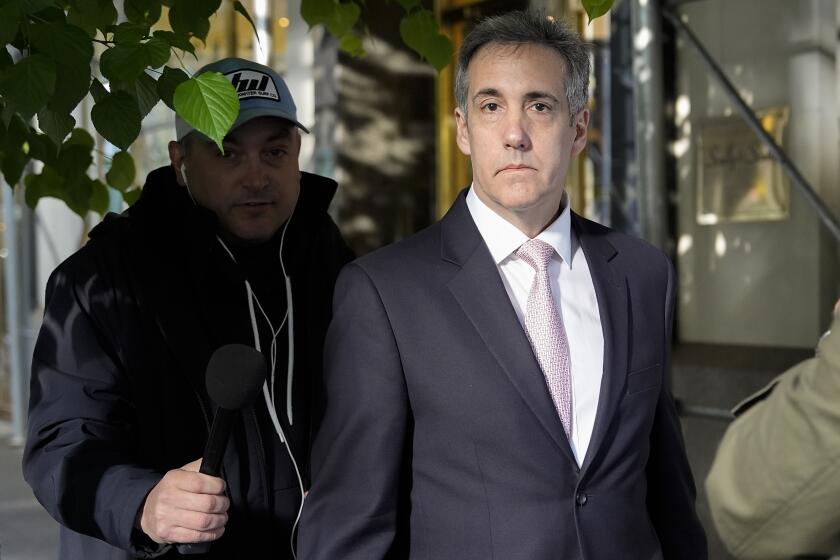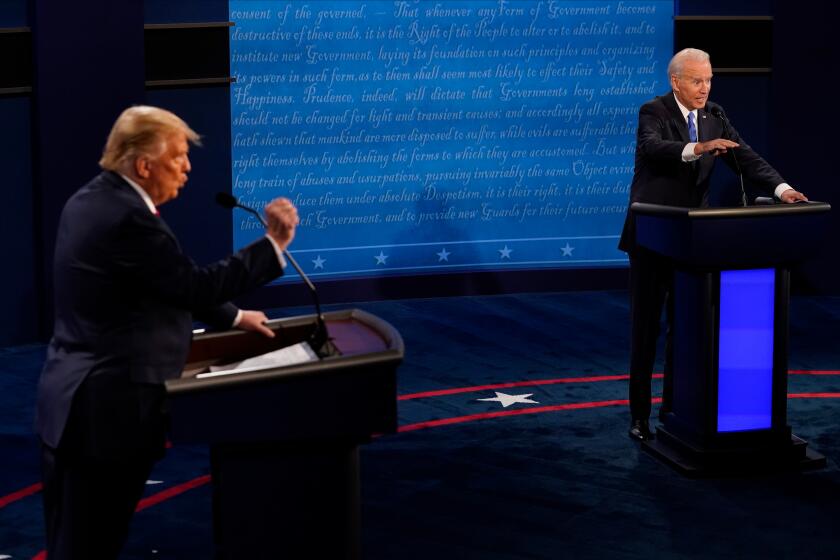President Bush Cuts From the Right Loaf, but Offers Children Too Few Slices : Head Start: The new budget’s burst of funding for the preschool program brings it back to life, if not to health.
The warmest, most progressive line in the entire Bush budget for 1991 has to be the $500 million new dollars the President is proposing for the Head Start program.
After almost a decade in Reaganesque Siberia, children’s advocates suddenly can switch the debate from mere preservation, or marginal improvements in the program, to the question of Head Start’s broader potential.
With a 36% funding hike to $1.9 billion next year, Bush proposes adding 180,000 low-income children to the 450,000 Head Start now serves. It would be the largest single-year budget boost in the program’s 25-year history and bring, the Administration claims, 70% of all eligible 4-year-olds into the program.
Well and good, but you have to ask: Why stop there?
With the program up for reauthorization in Congress this year, it’s time to ask if Head Start can’t be made America’s central tool to get millions of troubled kids and families on a sounder track.
We all know that Head Start provides lively Sesame Street-like stimulation for deprived preschoolers. But it does a lot more. Not only do the kids get an introduction to words and numbers and a chance to build their self-confidence; they also receive vision and hearing tests, psychological screening and get to see a doctor and dentist--often for the first time. Coming from homes where catch-as-catch-can often reigns, they’re fed a nutritious meal each day.
Then there’s the least-known, but vital, value of the project--what Head Start does for parents. Generally ill-educated, living on the ragged edge of employability, too often victims of domestic abuse, these parents need help if they’re to help their kids.
Head Start provides that help in interesting ways. Required to participate actively in their child’s progress, parents are led tactfully into their own literacy and high-school equivalency programs. The better Head Start staffs provide broad advice--how to get into substance-abuse programs, where to look for jobs, how to find health services. And the parents are encouraged to read to their children, to talk to and reason with them.
Some critics fault the Bush budget for stinginess on delayed program improvements and for not going far enough toward paying Head Start teachers adequate wages. But an even hotter debate centers on focusing all new program dollars on 4-year-olds.
The Administration argues that the year just before kindergarten is the most critical. There’s scant scientific evidence that two years of Head Start benefit kids any more than one, says Dr. Wade Horn, the Administration’s commissioner for children, youth and families under the Department of Health and Human Services.
The issue could hardly be drawn more neatly. Trying to keep overall social budgets down, the Bush camp garners positive reviews for saying that Head Start will now reach a majority of 4-year-olds.
And the children’s advocates answer: Do that and you’re just sticking a single finger in one of the many gaping holes in America’s crumbling social dike. Bush and his budgeteers need to see, they argue, that without an across-the-board set of interventions to break the bleakness and blankness of the early years of poor children, social disintegration and national decline follow as night does day.
A handful of studies have shown dramatic, long-term benefits for kids exposed to Head Start--less teen-age delinquency, fewer pregnancies and better employment prospects. Most studies are less sanguine; they suggest that many of the benefits fall off after two or three years.
“But there’s virtual unanimity,” says Horn, “that when distressed kids leave Head Start they are better off” than kids who don’t get the experience. The challenge is to ensure quality school and family follow-up. Maybe we need “booster sessions for Head Start kids as a child progresses through school,” he speculates.
Thirty-five states have their own pre-kindergarten programs--at least 10 of them coordinated directly through Head Start. But eventually it boils down to a decisive national responsibility. Head Start for as many kids and families as could use it could cost as much as $10 billion a year. That’s real money, but maybe well worth it.
After its seemingly generous new move, the Bush camp may be offering just a single slice off the right loaf.
More to Read
Get the L.A. Times Politics newsletter
Deeply reported insights into legislation, politics and policy from Sacramento, Washington and beyond. In your inbox three times per week.
You may occasionally receive promotional content from the Los Angeles Times.






